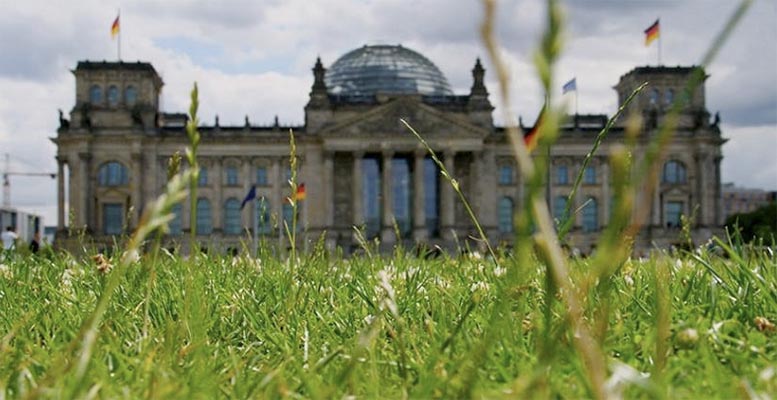Lidia Conde (Frankfurt) | Let’s go back to producing and working at home. The world is now a different place after the coronavirus. But what about in the future? Corporations are highlighting the risks of the global distribution of work, their weakness in the face of global value chains. Will work and production return to Europe, to Germany? It’s not clear. For now, Germany is reinventing itself and aiming for Europe and high tech. And investors are confident. Still.
The German economy’s response is ambivalent. It cannot be otherwise given the significance of its exports. Large companies like Daimler usually buy goods where they are produced. If manufactured in China, they are purchased from suppliers there. The President of German industry, Dieter Kempf, says that one of the reasons for its competitiveness lies in the advantages of global value chains. BASF alone operates with 75,000 suppliers worldwide. Meanwhile, in Wuhan, the Chinese province where the coronavirus originated, 700 automotive suppliers are producing. The trend towards a certain deglobalization could be accentuated. After the coronavirus it has become clear that “we cannot rely so much on international value chains,” says Veronika Grimm of the German government’s economic council. Policies require greater stability for infrastructure and key products. And the idea of replacing “just in time” (acquiring the parts needed by everyone at the right time) with “just in case” also resurfaces, which would mean re-stocking more. The idea is also to benefit local companies and to better meet social and environmental requirements. Insourcing instead of outsourcing? Difficult, says Daimler’s boss, Ola Källenius. “A world without global division of labour would be a less efficient world.”
For now Corona has changed Germany. The pandemic has led to unprecedented reactions and almost unconditional support for Europe. It’s a way of helping yourself. Unemployment will rise from 2.3 million in 2019 (an all-time low) to over 3 million currently. Germany is expecting the worst recession since World War II, with the economy declining by up to 8% in 2020. However, Berlin is optimistic there will not be another lockdown and that the world economy, on which Germany depends, will be normalised. Its response to the pandemic is a 130 billion euro stimulus package, including VAT cuts, and its support for the EU recovery plan.
Germany’s position also coincides with the message from the head of European diplomacy Josep Borrell. In an interview with the Süddeutsche Zeitung in June, he said he believes the Corona crisis has been a warning: “Europe needs strategic autonomy. (…) The lack of masks led to a crisis. Luckily, it’s easy to make masks. But what if we had problems supplying our communications infrastructure or with the high technology that our economy needs?” Borrell calls for a more independent and united Europe to face the world. “The virus has shown us that if we Europeans are not united, we will lack the minimum mass to survive.”
A systemic crisis would occur if exports collapsed, debts increased uncontrollably and banks were unable to emerge from the crisis. Not the most likely scenario, say German economic researchers. Investors are also not in doubt. But the risk to employment is that Corona came at a time of structural change. Previous recessions led to the replacement of unskilled labour with machines. Banks and companies are now going digital and vehicle production is going green. “The change now also affects skilled work, the middle class. So we could be facing a recession that is difficult to tackle,” warns Enzo Weber, head of forecasting at the IAB Institute. Weber is calling for professional qualification programmes for workers in sectors undergoing profound changes, such as the automotive industry.
Economic researchers reject short-term measures- no flash in the pan. Investing for growth. No senseless financing of consumption. Similar views were expressed in May by the advisors to the German government. The German Government’s Council of Economic Experts recommends an aid package that supports structural change – investing in training, infrastructure and digital transformation – rather than specific interests. The Council gave a resounding “no” to the request for a plan to incentivise purchases in the automobile sector because “they are measures that consolidate structures from the past, without achieving an effective impact on the current situation.”





